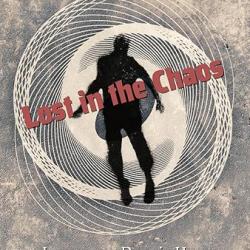Union University is leaving the Council for Christian Colleges and Universities, an organization of evangelical schools, because some of them have decided to embrace gay marriage. Other schools are considering doing the same. This has raised the question of what evangelicals and their institutions must be expected to believe. If everything is left to the interpretation of the individual believer, on what grounds can a church say that the interpretation is in error? The problem is, if you don’t have doctrinal confessions–the rejection of which many evangelicals pride themselves on–how can you make a doctrinal stand?
Westminster professor Carl Trueman, after discussing the immediate issues, concludes that if churches are going to be able to withstand the secularist onslaughts, they really need to have a specific theology worked out in their confessions of faith, as Lutherans, among others, do.
From Carl Trueman, The Problem of Evangelicalism’s Unstated Confessions | Carl R. Trueman | First Things:
This points to a wider problem which evangelicalism looks set to face in the very near future. It implicitly assumes too much and explicitly states too little. Roman Catholics have their Catechism, confessional Lutherans have their Book of Concord and Presbyterians have the Westminster Confession of Faith. Evangelicals often have at best very minimal doctrinal statements and a range of other, often confessionally unstated, cultural concerns which guide policy. These brief statements of faith and ‘shadow confessions’ are wholly inadequate to handle the coming cultural storm or indeed to guide day-to-day catechesis within the churches themselves. They also mean that the ‘gospel’ can tend to operate as a useful means for justifying any distinctive stand which evangelicals care to take.
This problem is both theological and cultural. Theologically, it will not be solved by the simple addition of a clause on marriage to such statements. The Christian understanding of marriage rests upon a whole complex of other doctrines, from creation to Christology to anthropology to eschatology. For a confessional statement on marriage to be coherent, the confession must also address all of these other topics.
Culturally, while American evangelicalism may be numerically healthy, the Union/CCCU debacle indicates a fundamental flaw in the movement which will only become more acute over time. It is too rooted in extra-ecclesial alliances and thus tends towards confessional reductionism. If evangelicalism is to have long term theological stability, it needs to learn from churches with properly elaborate confessions and catechisms. That will involve a major culture shift which might well cost its current leadership significant power and indeed money. A movement built on broad-based networks of churches and parachurch organizations will inevitably fragment when it tries to move to more thorough doctrinal statements. Yet failure to do so is surely not an option at this point in time. Evangelicalism may have the numbers but it needs confessional coherence to maintain its identity in face of the coming challenges. The ambiguity of the case of Union and the CCCU represents precisely the kind of problem which a lack of comprehensive confessional commitment necessarily involves.
Union’s stand is no doubt popular with the base. It may also serve a useful wider purpose. Yet it points not to the strength but to the weakness of evangelicalism.
















